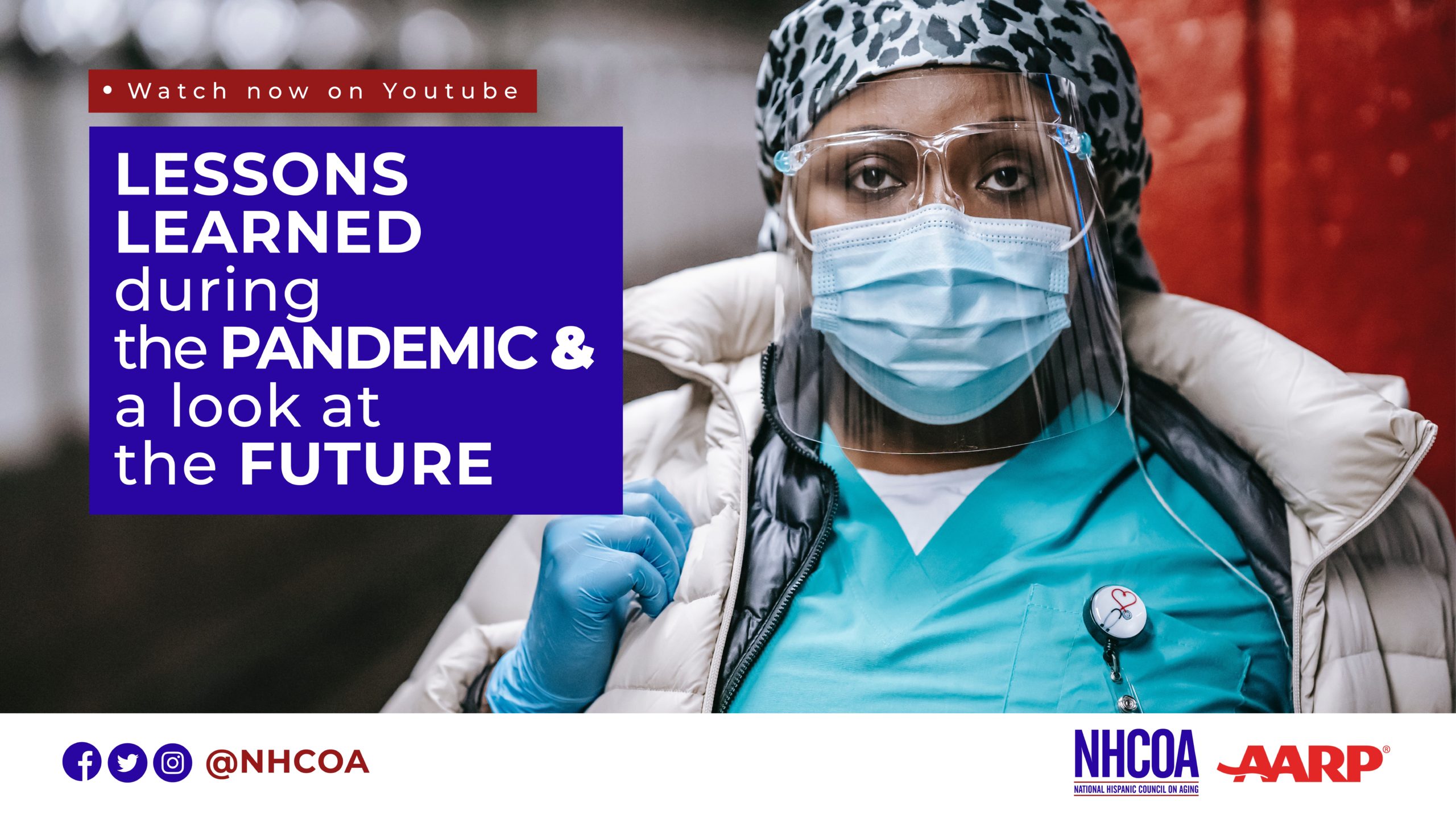By: Yanira Cruz, MPH, DrPH,. This article originally appeared on the NHCOA blog.
On April 29, 2021, NHCOA partnered with AARP to present the “Lessons Learned from the Pandemic and a Look at the Future” virtual town hall. Featuring speakers from Justice in Aging, the National Indian Council on Aging (NICOA), the National Caucus and Center on Black Aging (NCBA), the Southeast Asian Resource Action Center (SEARAC), and Services & Advocacy for Gay, Lesbian, Bisexual & Transgender Elders (SAGE), the town hall was used to highlight the inequities exacerbated by COVID-19 and how these groups addressed needs and challenges in their respective communities.
Many of the groups represented in the town hall have tragically had to witness disproportionate losses among their communities. Older adults have been severely impacted by COVID-19, with many families losing their elders as a result of the pandemic; Denny Chan, the Directing Attorney for Equity Advocacy with Justice in Aging, noted that Medicare enrollees of color faced hospitalization two times more than their white counterparts. COVID-19 outbreaks in nursing facilities have been particularly deadly, especially in facilities that serve primarily residents of color. The pandemic has shone a light on ageist policies in healthcare, such as crisis standards of care that give preference to patients under 65 years of age.
Moreover, black and brown communities have been overrepresented in terms of COVID-19 cases and subsequent deaths. Even now, “testing deserts”—locations that lack a reliable COVID-19 testing site—still exist, and they most often overlap with communities of color. Karyne Jones of the NCBA noted that the pandemic disproportionately impacted African Americans due to the fact that many community members are essential workers; an absence of quality healthcare, insurance, and accessible testing and vaccinations sites; existing chronic health conditions; and a lack of trust in national leadership and healthcare systems. Speakers from other organizations echoed similar concerns, including David Vincent, the Chief Program Officer of SAGE, and Rebecca Owl Morgan, NICOA’s Project Manager. Vincent touched on the social isolation many LGBT elders faced, exacerbated by a lack of support networks and a mistrust of the government and other systems. Morgan noted a “spiraling down” among Native American older adults who dearly missed the social lives they were used to; monthly support groups, birthday parties, powwows, and concerts were all put on hold, heightening a sense of isolation and depression.
Furthermore, Quyen Dinh, the Executive Director of SEARAC, noted that language barriers continue to be an obstacle to Southeast Asians seeking medical treatment—a sentiment NHCOA can echo in our own community. Dinh continued to state that COVID-19 revealed a need for long-term advocacy that goes beyond the pandemic. Everyone deserves the right to be seen (have adequate data collection that serves all population groups), the right to heal (access to healthcare, including mental healthcare), and a right to family (deportation reform).
The pandemic has brought a wave of tragedy upon all of our communities. It is vitally important that federal and state governments take heed of the voices of diverse population groups in order to ensure every person can lead a healthy life.
You can watch the Town Hall via https://www.youtube.com/watch?v=cUFwPlj6fCQ
The opinions expressed in this article are those of the author and do not necessarily reflect those of the Diverse Elders Coalition.


